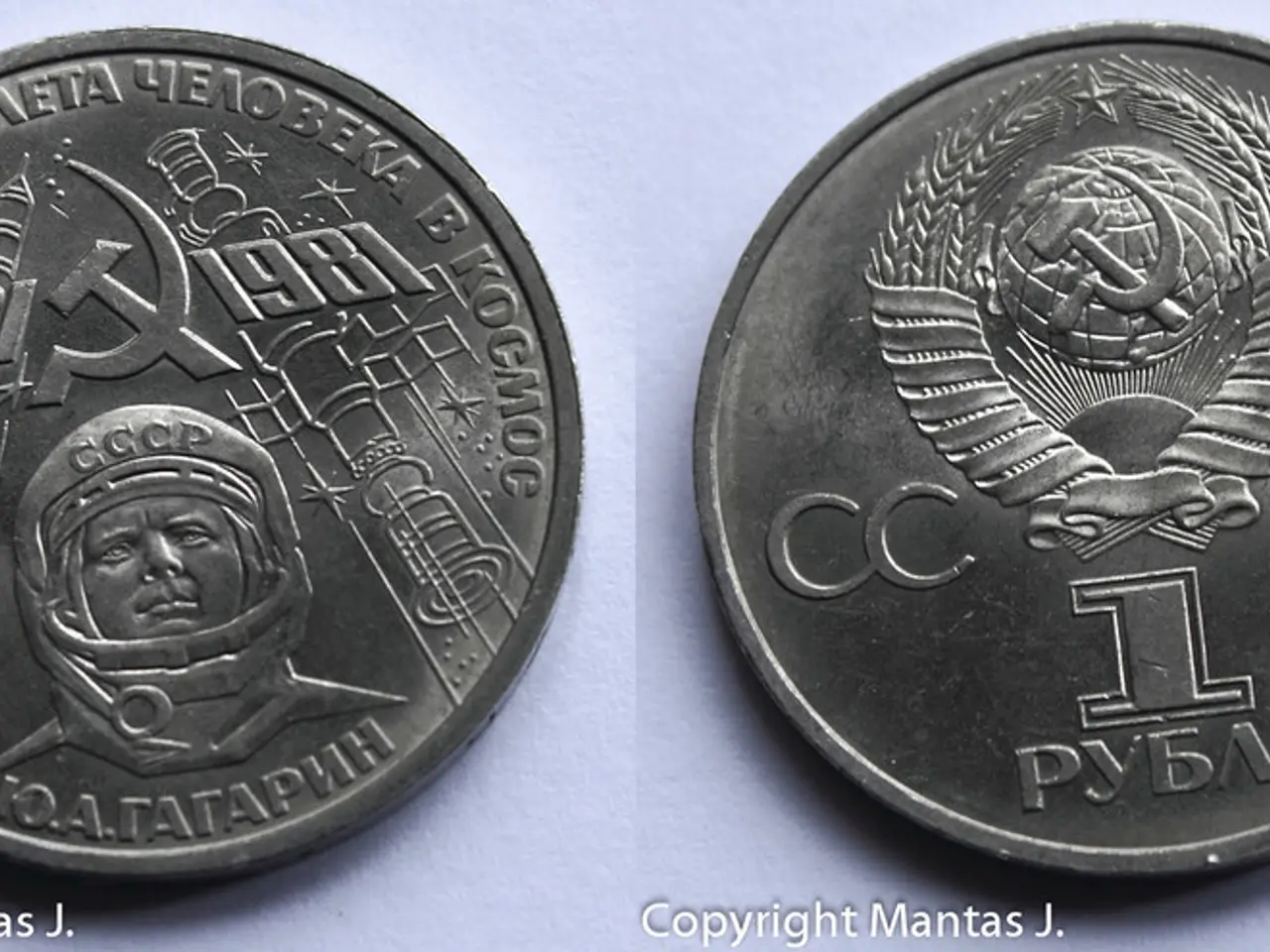World witnessed China's debut of a native digital currency, sparking global implications.
China Introduces Digital Yuan: A Central Bank Digital Currency (CBDC)
The People's Bank of China (PBOC) has unveiled its new digital currency, the digital yuan, aiming to enhance the country's control over payment systems, strengthen the international position of the yuan, and optimize monetary policy.
The digital yuan, also known as Renminbi digital, RMB digital, electronic Chinese yuan (e-CNY), or digital currency electronic payment (DCEP), is legal tender with the same value as traditional renminbi or yuan in banknotes and coins. It operates on a blockchain, a database of distributed and shared information among nodes, facilitating national and international transactions instantly.
Unlike decentralized cryptocurrencies like Bitcoin, Ethereum, Cardano, Solana, and Dogecoin, the digital yuan is a CBDC (Central Bank Digital Currency) issued and backed by the Chinese government. It can be used to securely and decentralized register transactions, with its main difference from a conventional database lying in how it structures, stores, and presents data.
Transactions made with the digital yuan can be made directly between two devices without the need for third-party intervention, making it faster and more economical than traditional financial methods. Moreover, it can make transactions without the need for an internet connection by allowing two compatible phones to perform operations simply by bringing the devices close to each other.
The digital yuan was designed to integrate directly into the existing financial system, potentially becoming an alternative to existing payment platforms. It is also part of China's plan to explore yuan-based stablecoins to increase the renminbi's global role and compete with the US dollar in international finance.
The Blockchain Service Network (BSN), an authority-approved system by the Chinese government, was launched in 2019 with the aim to replace the SWIFT system as a more secure method for international payments. Unlike decentralized blockchain networks, the BSN allows the government to reverse transactions if necessary, providing transparency.
China decided to create its own blockchain to implement the digital yuan, a move that several other states are already planning, researching, or implementing their own versions of CBDCs, including the Bahamas, Jamaica, Nigeria, and the European Union (planning for the digital euro).
Blockchains can store different types of information, not just cryptocurrencies. With the digital yuan, the Chinese government aims to gain better insight into domestic cash flow to optimize monetary policy and combat illegal activities, regain control over payment systems dominated by private companies, and strengthen the yuan's international position in future trade.
Read also:
- Peptide YY (PYY): Exploring its Role in Appetite Suppression, Intestinal Health, and Cognitive Links
- Toddler Health: Rotavirus Signs, Origins, and Potential Complications
- Digestive issues and heart discomfort: Root causes and associated health conditions
- House Infernos: Deadly Hazards Surpassing the Flames







